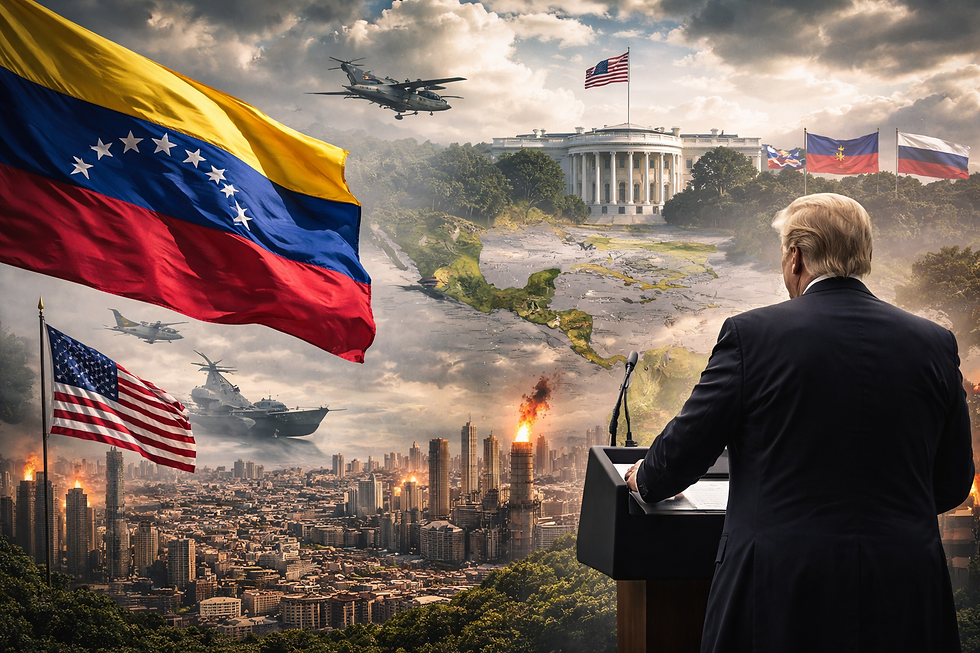A Voice Between Two Lands: The Strength of a Ukrainian Woman in Times of War
- laboratoriio360
- Oct 28, 2025
- 4 min read
Updated: Nov 19, 2025
Between the Costa Brava and Kyiv
In a small corner of the Costa Brava, far from the bombs, the power cuts and the alarms that repeat every day in her homeland, Verónica Naranjo Pavlova, a Ukrainian woman —who arrived in Spain as a teenager— shares with serenity and strength her personal experience in the midst of the war that has shaken all of Europe.
Her story is not that of someone who fled the conflict, but of a woman who has learned to reinvent herself far from home, support her loved ones from a distance, and continue building a life with dignity while watching how the war has transformed the fate of her country and the people she loves.
“When I came here, it wasn’t a shock because Spain reminded me a lot of Cuba. I adapted quickly,” she recalls. And although she now lives in peace, she recognizes the distance between her life and that of those who have had to start from scratch:
“I’m not the one suffering; the ones suffering are the people who had to come here leaving everything behind, and those who are still there.”
She was born in Ukraine, grew up between Cuba and Ukraine, and arrived in Spain at the age of 16. That blend of cultures shaped her identity and prepared her, without her knowing it, to face the most difficult moments of her life.
A Country at War and a Divided Family
In Ukraine she left her grandfather, a cousin, a friend whose husband has been on the front line since March 2022, and many childhood friends. She talks to them every week, although sometimes communication is scarce for fear that sensitive information might be leaked.
“My best friend is there. She tells me a lot, but I know everyone is afraid. They’re exhausted. Inflation is high, prices have gone up, and people are very tired,” she explains.
Among the names and stories she mentions, one weighs more heavily: that of a relative missing on the front since October.
“We didn’t even know he was there. The only thing they do is take DNA from the families and wait. We have no news,” she says, her voice restrained.
Identity and Language: Between Ukrainian and Russian
Her childhood unfolded in a Ukraine where Ukrainian and Russian coexisted naturally.
“When I was little we spoke Ukrainian, and Russian was more the language of school or television. Now it’s different. Many people are reclaiming Ukrainian as an act of resistance and pride.”
This linguistic shift also reflects the social transformation that the war has accelerated.
She lives between two worlds, but she rejects neither. She speaks Ukrainian fluently, though she often thinks in Russian.
“It took me a bit to switch the mindset, but it’s part of our history. There is no contradiction: it’s a struggle to preserve our identity.”
A Diaspora That Supports
Like many people in the Ukrainian diaspora, Verónica takes part in support groups, sends aid, and keeps constant contact with family and friends. She doesn’t do it out of obligation but out of conviction.
“I’ve never had to think about whether to help or not. It’s simply what you do.”
Through informal networks, compatriots across Europe and the United States collaborate to send clothing, medicines, resources, and moral support to those who remain in the country.
“Distance doesn’t isolate me,” she explains. “It has made me a bridge between worlds. Here I have my life, my job, my family… but every day, at some moment, I think about what’s happening there. You can’t disconnect.”
Language, Culture, and Belonging
Her story also reflects the complexity of being Ukrainian abroad at such a tense historical moment.
“I have Russian clients here, and I’ve never had problems with them. Some have even apologized to me, even though they’re not directly at fault. Every story is different.”
Thinking back on her adolescence in Spain, she reflects on how her time in Cuba opened the door to her ability to adapt. She says that period gave her an open mindset and the ability to coexist with different cultures, something that helped her find her place in a new country. However, she admits that it wasn’t always easy: there were moments of nostalgia and confusion, although over time she managed to integrate fully without abandoning her identity.
Her words capture what many immigrants feel: the balance between adapting and remaining faithful to one’s own essence.
Looking Forward
When she talks about the future, her voice blends hope and pragmatism.
“I know it won’t be easy to recover everything that’s been lost. There are many occupied territories and many people who have died. But I also know that the people of Ukraine are strong. We’ve resisted before and we will again.”
There is no forced heroism in her words. There is a quiet strength, a clarity that only those who have lived through exile without letting exile define them possess.
She is a mother, daughter, friend, worker and, above all, a witness to an era marked by war and civil resistance.
In her, a collective story takes shape: that of thousands of Ukrainians who, from afar, continue fighting for their country, caring for their loved ones, and keeping alive a culture that refuses to disappear.
“It’s difficult, but not impossible,” she says finally, and in that phrase echoes the dignity of an entire people.












Comments